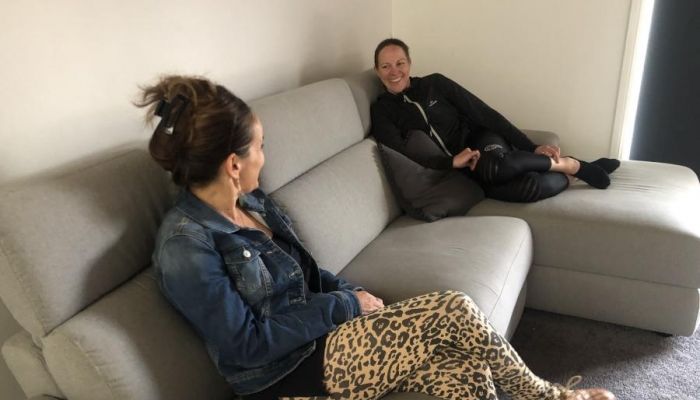Re-engaging with life - social connection is key
8 October 2020

Words Simone Worthing
“As humans, we need social interaction,” says Karla Milner, clinical psychologist with The Salvation Army in Tasmania.
“This involves seeing people, reaching out and touching them, and being able to read people’s facial expressions and body language. This is how we have meaningful communication with others and how we make sense of what they’re saying. Screens and phones just don’t give us what we need for the ‘whole person’.
“This is especially hard for people living on their own.”
Karla, who is also Team Leader for the Salvos Alcohol and Other Drugs (AOD) counselling programs in Hobart, explains that the pandemic and its lack of predictability has intensified the mental health issues of many people in the community, especially those who were already vulnerable and with fragile mental health. People’s resilience and ability to process information has been dramatically reduced.
This includes AOD clients, and those accessing counselling and support for a range of mental health issues.
EFFECTS OF ISOLATION
“Recovering from an addiction to alcohol or other drugs was disrupted by COVID-19, which caused mental health symptoms to become exacerbated and people turned back to relying on substances,” says Karla.
“Many of our clients were becoming more stable through participating in our recovery programs, including counselling, but their mental health suffered due to isolation and only having interactions with people via the internet or phone.
“It was the isolation that got to so many, and levels of anxiety and depression really increased. Many of our clients live on their own and don’t have a lot of support from family and friends, so there was no physical contact with anyone.”
Throughout lockdown and restrictions, Karla and her team established the ability to run all their support groups and counselling sessions online. Clients continued to have access to staff, to information and material, and to each other.
“We did the absolute best we could, but it was still not the same,” shares Karla. “The camaraderie of people talking spontaneously in a group was less and we had quite a few drop out.”
MEANING AND PURPOSE
Many community members, as well as AOD clients, are struggling with job losses. As well as the obvious financial fears, this is also leaving them with nowhere to go, nobody to see, and often with no purpose or meaning to their days.
“People need a purpose to their days, no matter who they are,” says Karla.
She shared the story of one of the clinic’s clients, who has schizophrenia, and was being supported and doing well prior to the COVID- 19 pandemic.
“This person completely relapsed and went back to using drugs and alcohol in the early weeks of lockdown,” says Karla. “They were suicidal and taken to hospital twice. The clinic staff have now re-engaged with the client face-to-face and the centre has also helped them engage in volunteer work to provide a sense of meaning and purpose to their days. The client has now turned a corner and is managing well.”
ACCESSING HELP POST LOCKDOWNS
Karla emphasises that mental health issues need to be addressed and treated, and that there is less stigma attached to seeking help for mental health conditions as the issues are more widely accepted and understood.
“If people are starting to feel that they can’t regulate their emotions, their thoughts are more negative or symptoms of previous mental health issues are increasing or returning, it’s time to get help,” she says.
“Make an appointment to see a GP. Phone appointments are also available. You may need to get on a mental health plan and see a psychologist or get additional professional assistance.”
Karla also recommends:
Routine. Having a routine helps give structure and predictability.
Social connection. Whether it’s accessing family and friends online, meeting face-to-face, being part of a support group, walking into a shop and talking to someone, social connection is vital.
“Help is out there. Nobody needs to go through this alone.”
WHERE TO GET HELP?
In an emergency: 000
Beyond Blue: 1300 22 4636
Coronavirus 24-hour helpline: 1800 512 348
Findapscyhologist.org.au or call 1800 333 497
Headspace: 1800 650 890
Kids Helpline: 1800 551 800
Lifeline 24-hour telephone crisis support: 13 11 14
MensLine Australia: 1300 789 978

Comments
No comments yet - be the first.